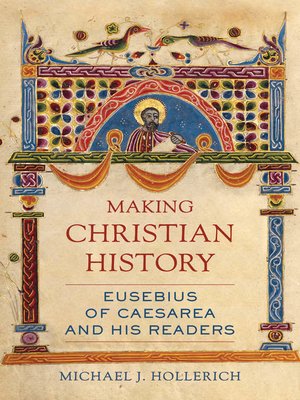Making Christian History
ebook ∣ Eusebius of Caesarea and His Readers · Christianity in Late Antiquity
By Michael Hollerich

Sign up to save your library
With an OverDrive account, you can save your favorite libraries for at-a-glance information about availability. Find out more about OverDrive accounts.
Find this title in Libby, the library reading app by OverDrive.



Search for a digital library with this title
Title found at these libraries:
| Library Name | Distance |
|---|---|
| Loading... |
Known as the "Father of Church History," Eusebius was bishop of Caesarea in Palestine and the leading Christian scholar of his day. His Ecclesiastical History is an irreplaceable chronicle of Christianity's early development, from its origin in Judaism, through two and a half centuries of illegality and occasional persecution, to a new era of tolerance and favor under the Emperor Constantine. In this book, Michael J. Hollerich recovers the reception of this text across time. As he shows, Eusebius adapted classical historical writing for a new "nation," the Christians, with a distinctive theo-political vision.
Eusebius's text left its mark on Christian historical writing from late antiquity to the early modern period—across linguistic, cultural, political, and religious boundaries—until its encounter with modern historicism and postmodernism. Making Christian History demonstrates Eusebius's vast influence throughout history, not simply in shaping Christian culture but also when falling under scrutiny as that culture has been reevaluated, reformed, and resisted over the past 1,700 years.
Eusebius's text left its mark on Christian historical writing from late antiquity to the early modern period—across linguistic, cultural, political, and religious boundaries—until its encounter with modern historicism and postmodernism. Making Christian History demonstrates Eusebius's vast influence throughout history, not simply in shaping Christian culture but also when falling under scrutiny as that culture has been reevaluated, reformed, and resisted over the past 1,700 years.







